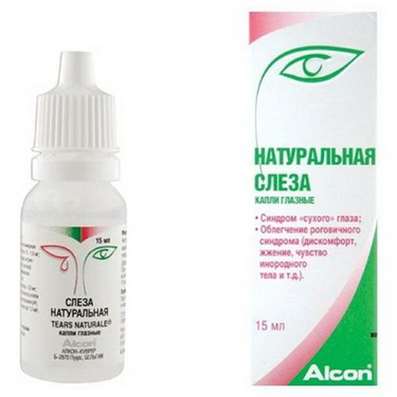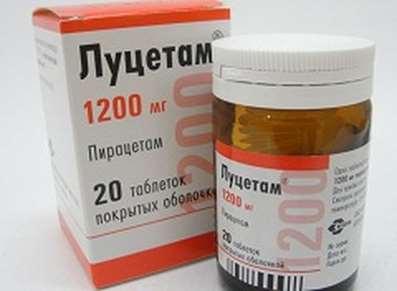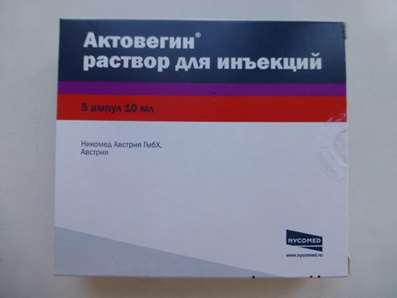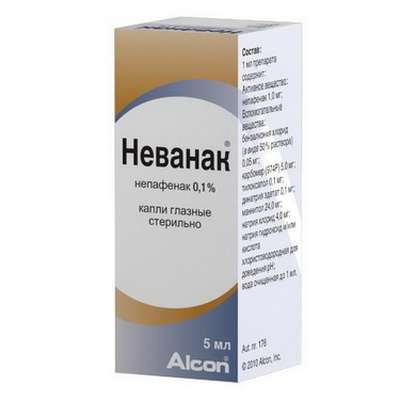Creation of new medicines: Challenges and Limitations
19 Dec 2016
Dr. Doping said about the establishment of new drugs, the problems faced by Russian pharmacologists, and about what does all this have ethics. Despite the administrative and financial problems, the Russian Pharma develops, but it is faced with another major task - to return the trust of consumers.

- What are the problems now facing pharmacology? And what role is played here by the academic science?
- From the outset, I must emphasize the difference between the production of so-called generic drugs and the creation of new drugs. Under the generic drugs are understood, which expires patents, and now, any company having the appropriate license, can produce their own. There is no science, it is a pure technology, which should lead to cheaper, but the quality of the same drug. Therefore, the question of generic drugs - not an academic problem.
The task of academics is to create a fundamentally new medicines. Their first major problem - in search of new approaches, solutions, pharmacological regulation of ideology. The second problem is finding the chemically or biotechnologically synthesized substances that this ideology can turn into a real prototype of a new drug.
By creating an ideology, you then create a library of compounds necessary for its implementation, and already have selected the best, and the main content of the concept of the "best" in this case - the efficiency, selectivity and the harmlessness of a new drug.
Here and there is a major problem, which I call the ethical. It arises because the science of creating drugs unlike other sciences can make money, and large. And this, unfortunately, especially in our new social and economic conditions, it is dominant in the minds of entrepreneurs. And an ethical problem here is that if you create the original drug, you must first prove that it has specific advantages compared to existing today. At this stage of the predominance of commercial interests proved a serious problem. This was evident in the selection of projects in the program "Pharma 2020". The work of experts in this program, I saw that many of the authors who do not have sufficient education, seriously believe that if the project is commercially viable, it should be maintained, and the problem goes away with efficiency by the wayside. The problem is very serious, and similar examples show that the main condition for its solution lies in the fact that it is an academic community to identify drug development ideology.
- And how to solve it to the academic community? Create special reports?
- Protocols will not help, but they are impossible to create a new one. They are necessary for the production of generics for compliance technologies to ensure their quality. Creating a new medicine, you go unbeaten through, you do not know what is around the next corner, and no common protocols are, by definition, can not be. The only thing that there can and should be - the Bible, Moral Code of the Builder of Communism, if you will, in other words, a code of conduct for scientists, Code of conscience! Where it comes to the life and health of people, it is especially important.
The scientist must understand that no scientific success, neither any motivation related to career development, finance, should not be in the first place. In the first place must be proof of the effectiveness and safety of the new drug as well as its advantages compared with what already exists. If it is in the mind of a scientist, he is on the right path. If not, I would not call this a researcher scientist. Unfortunately, the existing registration systems, these positions are not clearly marked.
- Today, pharmacology, namely that its section, which is called in overseas drag design, ie drug development, and which specifically does your institution in the world is on the rise. What exactly is this recovery?
- First, a little history. Pharmacology occurred simultaneously with humanity, people have always been two major issues for it - where are the medications and how to find them. The source for the drugs were new knowledge. Man plucked leaf, eating, I realized that this medicine - it was his new knowledge. The base of new knowledge is enriched, the plants have been found, have a stimulating effect, narcotic effect and so forth. Then came the isolation and purification methods, to obtain new substances. It was the same with the physiology. For example, opened adrenaline or corticosteroids - in humans, a new knowledge based on these newly discovered structures were created drugs. All Pharmacology, existing today, one way or another tied to physiological discoveries.
And now is the time of a new, even more interesting from the point of view of the fundamental nature. Disclosed cellular regulation mechanisms, mechanisms of cellular response to various external influences. Disclosed are new mechanisms of signal. The result was a completely new aspect of pharmacology capabilities, we go not from some well-known regulatory compound, but from the molecules of the protein that is known to be involved in a particular physiological response. His injury - genetic or other - led to the pathology, because impaired regulatory function. We want to act on the protein to restore regulation. Using various methods, one can determine the protein binding site and hence seek ligand that interacts with it.
Knowing the structure of the binding site, we can with the help of computer design to create the structure of the expected ligand. Thus, if end up in the XX. Pharmacology was based solely on the similarity, but now there is the possibility of meaningful action on the target.
- And what does it mean in reality?
- In reality, this means expanding the area of the search controls. For example, in addition to the effects on cell-surface receptors now with the identification of new intracellular processes, we were able to influence the intracellular structure. Scientists have a fairly active use of this opportunity, there are successful examples of intracellular regulation. For example, in our institute made the development associated with the chaperone. Chaperone - a kind of "protein-bodyguard" protein formation, which when conformational irregularities in another protein is able to interact with it, and to rectify this violation. In this way we have created the first anxiliotic with a fundamentally new mechanism of action - the first ligand activator chaperone, introduced into medical practice.
- New knowledge, new power of computers, the rapid development of genomics - all this gave impetus to the development of drug design. How are the new targets for drug development from what it was, say, in the beginning of the century?
- My answer may surprise you: nothing! The objectives remain the same: efficiency, selectivity, safety. However, the expanded design possibilities. However, new methods in addition to, not rejecting them traditional. We have many people, especially officials, like slogans. Now, for example, insist on post-genomic technologies. When I asked if it could provide a breakthrough in pharmacology, I could not answer, but asked the opponent a counter-question: "What if I create a medicine, using pre-gene technology - is it good or bad?" He, too, was unable to answer.
In fact, the answer is given, if only the last of the Nobel Prize - it is known, has received Chinese Yu Tu, has created a cure for malaria, based on the analysis of the structure of substances contained in the plant! This method is known for a very long time, just, new technologies, new methods of screening such compounds, but ideology is something remained the same. If we talk about a qualitative leap, they came, as I said, in the methodological possibilities and ideology remained the same: it is the use and modification of the structure of already known regulators, the search for new. It has not changed, and can not be changed in principle since the pharmacy is inextricably linked to human physiology and a goal of a drug does not exist.
- Really, nothing has changed? For example, what is happening now with the development of personalized medicine?
- Active talk of personalized medicines have begun as soon as able to read the human genome. All spoke of the imminent arrival of a new medicine, when you understand which genes are responsible for that, which genes in a given individual change, scientists have come up with a way to fix these genes - and all at once recover. They said everything was silent just genetics and pharmacology. They were silent because they knew very well how great a distance from the gene to phenotype is unknown what the nature of the modification introduced in humans in the modified gene. Today, numerous clinical studies have not given evidence to suggest that even a genome-wide analysis determines with reasonable probability prognosis of the disease and the effectiveness of pharmacotherapy. However, when it is possible to trace the mechanisms of genetic control, successful solutions are, for example, when using anticoagulants, taking into account the intensity of drug biotransformation.
On the basis of genomics data, we determined the feasibility of establishing a drug with similar pharmacological effects, but working on different mechanisms. For example, we are creating anti-anxiety medications that act on the various alarm mechanisms, and thus give the doctor the opportunity to choose a drug to which the patient is sensitive it. Each group of drugs, especially in psychopharmacology, finds the group of patients. This is a new concept in pharmacology, we have developed in recent years.
- Headed your institution has an unusual structure. It seems that all of his laboratory are the links of a single whole, each is closely linked to the others, it has its mission dedicated to the main subject - the creation of a new drug.
- Really, it is. And what distinguishes our institute from many others, because the principle of program-target studies was laid down at the outset. And almost all the time that we exist, we are trying to learn from the top any nonsense dictate how and what we do, but we still manage to preserve their principles of organization. For each task that we set for ourselves, we create a program covering all laboratory.
For example, there is the idea of a new neuroprotective. Theorists run in the idea, then we create chemical compounds, they then studied pharmacology, Neurochemical Societies show how it works, watch the pharmacokinetics, as the substance is distributed, excreted, toxicologists determine toxicity, etc. Under each idea we have such a program, which includes all aspects related to the development of a new product - from concept to clinical trials.
- And yet you keep doing drugs, which are then available over the counter. How many of your account popular drugs?
- Here's our product, see for yourself. We created and studied drugs - anxiolytics, nootropics, anti-asthenic drugs (Phenazepamum, Sidnocarb, Ladasten).
(The Doctor proudly points to a shelf lined with about a dozen packages of medicines, among which not even a frequenter of clinics can see familiar names – Ladasten, Afobazol, Phenazepamum, mexidol, Meldonium ...)
- In Russia, domestic drugs distrust, preferring foreign products. Do you think that you need to win this distrust?
- I'll tell you where it went distrust. The Soviet Union provided themselves with their own medicines from its own substance by 70%. It was the pharmaceutical industry, solid branch institutes. The problem arose from a special service system that used imported drugs. This has generated a stir if the authorities treated by western medicine, then our medicines worse. Distrust has gone out, and then trust is simply nowhere to be, because in the 1990s. our entire pharmaceutical industry was destroyed overnight. The market quickly occupied by foreign companies.
And about how to regain the trust ... You just have to make effective drugs and people, I assure you, they will be active and happy to buy, and doctors - to appoint. For example, two of our products - and mexidol and Phenazepamum - included in the list of essential medicines, and there is even a hint of distrust.

 Cart
Cart





